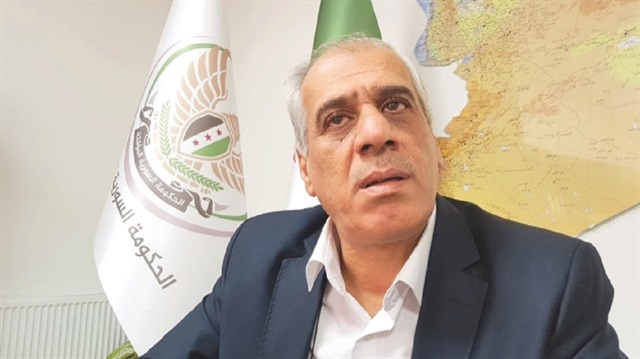
Speaking exclusively to Yeni Şafak daily, the prime minister of Syria’s Interim Government described the Russian attack that precedes a planned summit in Tehran on Sept. 7 as “surprising”
Syrian opposition head Jawad Abu Hatab has called on Turkey and the international community to stop the massacre in Idlib after Russian bombardment struck 18 targets in the northwestern opposition stronghold.
Speaking exclusively to Yeni Şafak daily, the prime minister of Syria’s Interim Government described the Russian attack that precedes a planned summit in Tehran on Sept. 7 as “surprising,” noting that over 30 missiles struck the Idlib town of Jisr al-Shughour, then Hama’s Sahl al-Ghab region.
A trilateral summit of Turkey, Russia and Iran on Syria is scheduled for Friday, with the participation of Turkish President Recep Tayyip Erdoğan, Russian President Vladimir Putin and Iranian President Hassan Rouhani.
On Tuesday, Russian warplanes bombed several areas in the last opposition-held stronghold of Idlib, raising worries of a major assault by the Assad regime forces and its allies.
Located near the Turkish border, Idlib is home to more than 3 million Syrians, many of whom fled from other cities following attacks by regime forces.
“A serious ground mobilization can be seen on the regime front, but any ground bombing or advance has not started yet,” noted Abu Hatab.
Abu Hatab pointed that the Assad regime grew emboldened by international indifference toward Syria, pointing that the aim of pro-Assad forces is to control the opposition-held towns of Ariha, Khan Sheikhun, Saraqib, Jisr al-Shughour, Qalaat al-Madiq and the M4- M5 highway.
In May 2017, Idlib was designated a “de-escalation zone” -- in which acts of aggression are expressly forbidden -- as part of ongoing peace talks in the Kazakh capital of Astana.
Abu Hatab also warned that the northwestern opposition-held regions would turn into “ghost towns” if the regime manages to seize control over them, which would successfully secure the western leg of Assad’s project after the PKK-U.S. alliance largely completed the same mission in the eastern parts of the country.
A large-scale Syrian regime offensive in the opposition stronghold of Idlib could lead to the “worst humanitarian catastrophe in the 21st century,” the UN’s humanitarian chief warned on Tuesday.
Hello, the comments you share on our site are a valuable resource for other users. Please respect other users and different opinions. Do not use rude, offensive, derogatory, or discriminatory language.
The floor is all yours.













